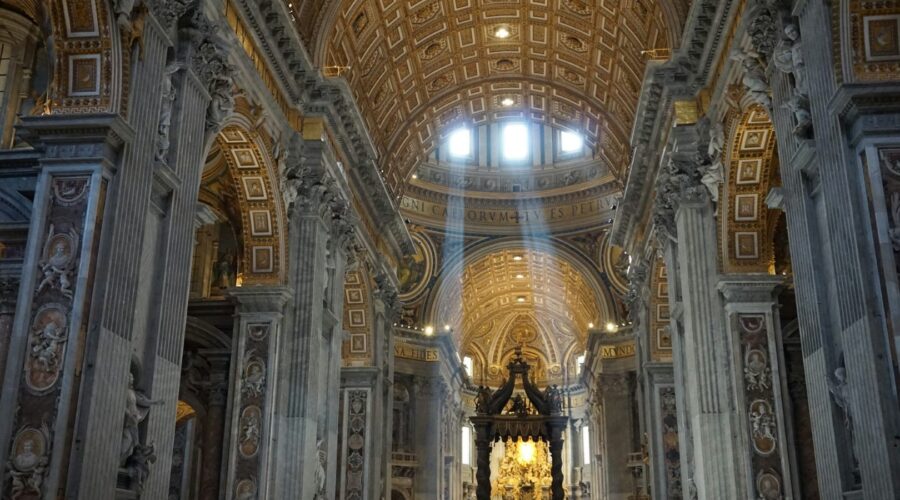Welcome to the vibrant and ancient realm of Antiochian Orthodoxy, a branch of Christianity with a rich history and unwavering commitment to preserving its traditions. This comprehensive guide will delve into the captivating world of Antiochian Orthodoxy, exploring its unique characteristics, practices, and enduring legacy.
The Roots of Antiochian Orthodoxy
The roots of Antiochian Orthodoxy can be traced back to the bustling metropolis of Antioch, Syria, where some of the earliest Christian communities emerged. According to tradition, the Church of Antioch was founded by none other than the Apostle Peter, who ordained Evodius as its first bishop.
Over the centuries, the Church of Antioch spread throughout the Middle East, North Africa, and Europe, becoming one of the five major patriarchates of the Eastern Orthodox Church. Its unique theological perspectives and liturgical practices set it apart from other Christian denominations.
Key Characteristics of Antiochian Orthodoxy
Antiochian Orthodoxy is characterized by its distinctive:
- Emphasis on Tradition: Adherence to the teachings of the early Church Fathers and the Holy Tradition, which includes both written and unwritten sources.
- Sacramental Theology: Belief in the sacramental nature of God’s grace, dispensed through the seven sacraments, such as Baptism, Eucharist, and Confession.
- Liturgical Spirituality: A strong emphasis on liturgical worship, with elaborate rituals and prayers that engage all the senses.
Practices and Beliefs
Worship and Liturgy
Antiochian Orthodox worship is a multi-sensory experience that immerses worshippers in the timeless beauty of tradition. The Divine Liturgy, the central act of worship, is celebrated on Sundays and major feast days. It consists of:
- Procession of the Gospel: The reading of the Gospel from the altar.
- Eucharist: The consecration and distribution of bread and wine, representing the body and blood of Christ.
- Intercessions and Prayers: Time for petitions and prayer for the living and the dead.
Sacraments
Antiochian Orthodoxy recognizes seven sacraments, each believed to convey divine grace:
- Baptism: Immersion in water, symbolizing cleansing and new birth.
- Chrismation: Anointing with Holy Chrism, confirming the newly baptized into the faith.
- Eucharist: Receiving the bread and wine of the Divine Liturgy, seen as partaking of the body and blood of Christ.
- Penance: Confession of sins to a priest, followed by absolution and reconciliation.
- Anointing of the Sick: Prayer and anointing with Holy Oil for healing and strengthening.
- Holy Orders: Ordination into the priesthood or diaconate.
- Marriage: Blessing and uniting of a man and woman in the presence of God.
Monasticism and Spirituality
Monasticism plays a significant role in Antiochian Orthodoxy. Monks and nuns dedicate their lives to prayer, contemplation, and service, seeking spiritual perfection through:
- Prayer and Worship: Daily prayer services, including the Divine Office and the Jesus Prayer.
- Asceticism: Practice of self-denial, including fasting, vigils, and manual labor.
- Obedience: Submission to the authority of an abbot or abbess.
Contribution to Christianity
Antiochian Orthodoxy has made significant contributions to the development of Christianity, including:
- The Antiochene School of Theology: A renowned center of theological learning that influenced the development of early Christian doctrine.
- Liturgical Innovations: Antioch was instrumental in shaping the structure and content of Orthodox Christian liturgy.
- Missionary Activity: Antiochian missionaries played a vital role in spreading Christianity throughout the Middle East and beyond.
Conclusion
Antiochian Orthodoxy is a vibrant and enduring branch of Christianity, rich in tradition, sacraments, and spiritual practices. Its ancient roots and unwavering commitment to the teachings of the early Church continue to shape the faith of millions of believers around the world. Whether you are a devout follower or simply curious about this fascinating religion, we encourage you to delve deeper into the captivating world of Antiochian Orthodoxy.
| Bishopric | Diocesan Bishop |
|---|---|
| New York and Washington, D.C. | Archbishop Michael |
| Toledo and the Midwest | Bishop Anthony |
| Los Angeles and the West | Bishop Joseph |
| Boston | Bishop Thomas |
| Ottawa | Bishop Ina |
| Edmonton | Bishop Daniel |
| Colombia and Venezuela | Bishop Silvan |
Additional Resources:


Leave a Reply